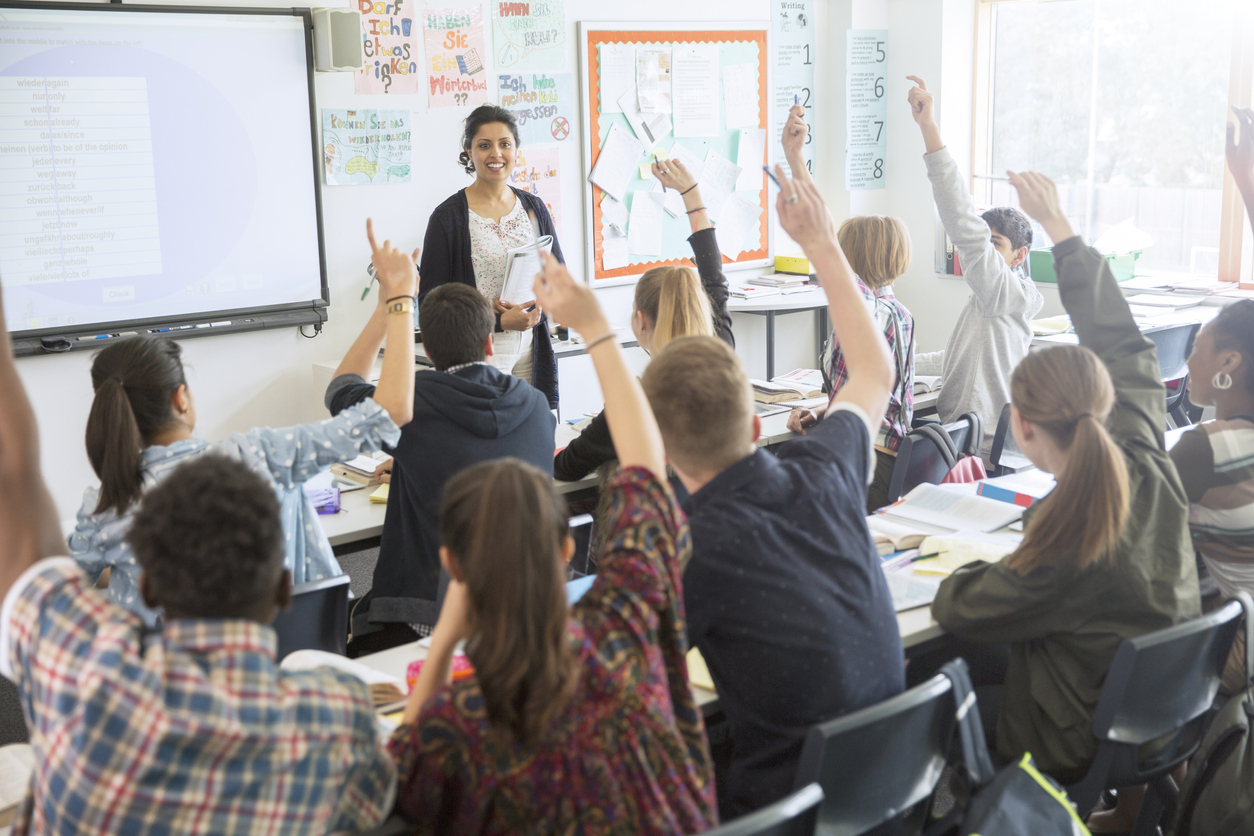Top Primary Science Tuition Singapore to Help Your Child Excel
Top Primary Science Tuition Singapore to Help Your Child Excel
Blog Article
Checking Out the Various Mentor Methods in Primary Science Education And Learning Today
The landscape of main science education is progressing, with numerous mentor strategies getting prestige in modern class. Inquiry-based understanding, hands-on experiments, and the assimilation of modern technology are redefining exactly how teachers involve young minds. In addition, collaborative strategies and separated guideline are being utilized to accommodate the varied demands of trainees, boosting both interaction and understanding. As we analyze these approaches, questions occur regarding their performance and the implications for future educational practices. What might these shifts in strategy mean for the following generation of learners?
Inquiry-Based Discovering
Inquiry-Based Knowing (IBL) is a pedagogical strategy that encourages trainees to check out clinical ideas with wondering about, investigation, and hands-on testing. This method stresses the role of trainees as active individuals in their discovering, advertising critical thinking and problem-solving skills. By involving with real-world inquiries, pupils become inspired and interested, which enhances their understanding of scientific principles.
In IBL, instructors function as facilitators, assisting trainees as they browse their inquiries instead of delivering details straight. This student-centered strategy enables distinction, suiting various finding out speeds and designs. Students develop abilities in formulating hypotheses, designing experiments, and evaluating data, which are crucial for clinical proficiency.
In addition, IBL cultivates cooperation amongst trainees, encouraging them to share searchings for and concepts. This collective questions advertises social abilities and a sense of area within the classroom. The procedure of questions urges strength, as trainees learn to welcome failing as a stepping stone towards understanding.
Hands-On Experiments
Hands-on experiments are a crucial element of reliable science education and learning, matching the principles of inquiry-based learning. These experiments allow students to involve straight with clinical concepts, promoting a much deeper understanding via experiential knowing. By manipulating products and observing outcomes, young learners can realize abstract concepts in substantial ways.
Such activities promote crucial thinking and analytic abilities, as students hypothesize results, conduct experiments, and evaluate outcomes. This process motivates them to ask inquiries, refine their understanding, and establish a scientific frame of mind. Hands-on experiments can be tailored to diverse discovering styles, making sure that all pupils have the opportunity to involve meaningfully with the content.
Additionally, hands-on experiments usually encourage cooperation amongst peers, advertising team effort and interaction abilities. Working in teams makes it possible for trainees to share concepts, go over findings, and gain from each other, which enhances their total instructional experience.
Integrating hands-on experiments into the primary scientific research curriculum not only improves the learning atmosphere yet likewise cultivates a lifelong interest in scientific research. By proactively taking part in their education and learning, trainees are more probable to establish an interest for clinical inquiry that expands beyond the classroom.

Modern Technology Integration
Incorporating modern technology right into primary science education has actually come to be increasingly vital in promoting trainee engagement and improving learning outcomes. Using digital devices, such as interactive simulations, virtual laboratories, and academic software, offers students with possibilities to explore scientific principles in cutting-edge ways. These sources promote a much deeper understanding of complicated topics by enabling students to imagine and adjust variables that would certainly be impractical in a conventional class setup.
Additionally, innovation combination urges personalized discovering experiences. Students can advance at their very own rate, taking another look at tough principles via multimedia resources, which provide to various discovering styles. This adaptability not just supports individual development but also grows a feeling of autonomy in students.
In click here for more addition, technology functions as a bridge to real-world science, connecting pupils with present research and professional contributions. Accessibility to online databases and scientific journals expands trainees' viewpoints on clinical inquiry and fosters critical thinking abilities.
Collaborative Knowing
Joint understanding plays a crucial function in primary science education and learning by cultivating teamwork and interaction abilities among trainees. This approach encourages students to work with each other, share understanding, and participate in problem-solving, which improves their understanding of clinical concepts. By taking part in team tasks, trainees find out to verbalize their ideas, pay attention to diverse point of views, and negotiate services, every one of which are important abilities in both scholastic and real-world contexts.

Research shows that joint understanding can bring about boosted motivation and involvement in scientific research topics, as students find pleasure in shared experiences (primary science tuition Singapore). Furthermore, this approach prepares pupils for future joint ventures, outfitting them with the skills necessary for effective team effort in greater education and learning and expert navigate to these guys atmospheres. Inevitably, accepting collective understanding in primary scientific research education can substantially improve the learning experience and promote a much deeper understanding of scientific questions
Distinguished Direction

Distinguished guideline can manifest in various ways, such as differing the content, procedures, or items of discovering. Instructors may use tiered jobs that give differing levels of complexity, allowing pupils to function at their particular readiness levels. Additionally, adaptable organizing approaches can assist in partnership among trainees with different capabilities, promoting peer understanding.
Analysis plays a vital role in this technique, as it informs instruction and assists teachers comprehend each trainee's one-of-a-kind demands. Formative analyses, such as tests and observations, can assist instructors in readjusting their techniques to improve finding out end results. primary science tuition Singapore. Eventually, by carrying out distinguished direction in main scientific research education and learning, teachers can grow an extra equitable and efficient understanding atmosphere, encouraging all students to reach their full potential in comprehending scientific phenomena
Final Thought
In summary, the varied training methods in key science education and learning, consisting of inquiry-based understanding, hands-on experiments, innovation integration, collaborative understanding, and differentiated instruction, jointly add to a much more efficient discovering environment. These techniques promote important reasoning, problem-solving skills, and a much deeper comprehension of scientific ideas. By applying these strategies, teachers can produce supportive and engaging classrooms that address the diverse demands of pupils, ultimately promoting a lifelong interest in science and improving scholastic accomplishment.
Inquiry-Based Knowing (IBL) is an instructional approach that motivates trainees to check out clinical ideas with questioning, examination, and hands-on more information experimentation.Collaborative knowing plays a vital duty in primary scientific research education and learning by cultivating teamwork and communication skills amongst pupils.Study indicates that joint discovering can lead to increased motivation and engagement in scientific research topics, as trainees locate enjoyment in common experiences.In promoting an inclusive understanding atmosphere, distinguished instruction arises as an essential strategy to fit the diverse demands and abilities of pupils in main scientific research education and learning. Ultimately, by executing distinguished instruction in primary scientific research education, instructors can grow an extra efficient and fair discovering atmosphere, equipping all trainees to reach their complete possibility in recognizing scientific sensations.
Report this page